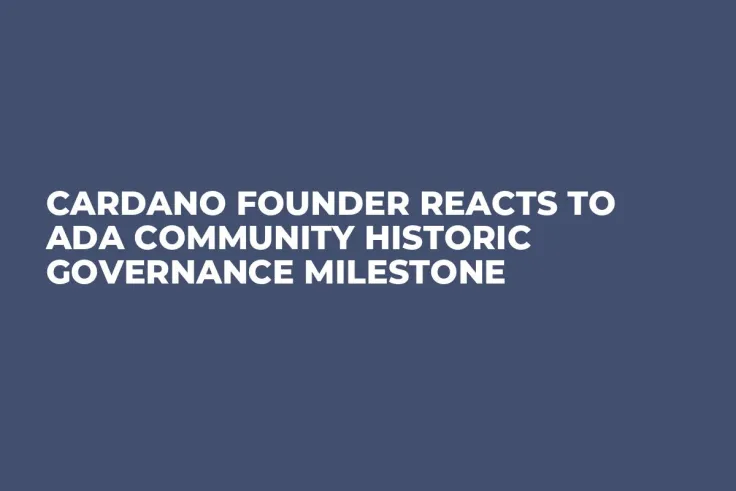
Disclaimer: The opinions expressed by our writers are their own and do not represent the views of U.Today. The financial and market information provided on U.Today is intended for informational purposes only. U.Today is not liable for any financial losses incurred while trading cryptocurrencies. Conduct your own research by contacting financial experts before making any investment decisions. We believe that all content is accurate as of the date of publication, but certain offers mentioned may no longer be available.
The Cardano (ADA) community just made history. For the first time, the community has directly approved core development funding, ushering in a new era of decentralized governance.
Cardano's Chang and Plomin upgrades ushered in a fully decentralized, self-sustaining network with community-driven governance, empowering ADA holders.
Cardano founder Charles Hoskinson reacted to this milestone, offering gratitude to the ADA community: "Thank you everyone for your support and trust. Let's get it done."
In a major milestone, the Input Output Engineering (IOE) protocol road map proposal has been approved for funding from the Cardano treasury following overwhelming community approval.
The Cardano Community has formally voted in support of the IOE funding proposal (73.93% vote), marking a step forward in the journey toward community-led delivery and long-term protocol advancement.
By taking this step, the ADA community has approved not only a set of technical upgrades but also a consensus vision for Cardano's future. The road map, created in line with community priorities and adopted earlier this year, outlines one of the chain's most ambitious development phases in history.
What's coming?
The core development funding supports major upgrades in scalability, developer experience and interoperability. These include Ouroboros Leios, a fundamental performance upgrade that enables faster throughput without compromising security or decentralization.
Hydra is a protocol for ultra-fast, low-cost transactions and is ideal for microtransactions and real-time applications. Mithril enhancements will reduce bootstrapping times and provide lightweight client support for more adoption.
Nested transactions lay the technical basis for advanced smart contracts and interoperability.
Project Acropolis will enable a modular rearchitecture of the Cardano node, allowing for increased flexibility and faster onboarding of new core developers.
Performance optimizations include faster sync times, lower RAM usage and reduced operational costs for stake pool operators.

 Arman Shirinyan
Arman Shirinyan Alex Dovbnya
Alex Dovbnya Dan Burgin
Dan Burgin